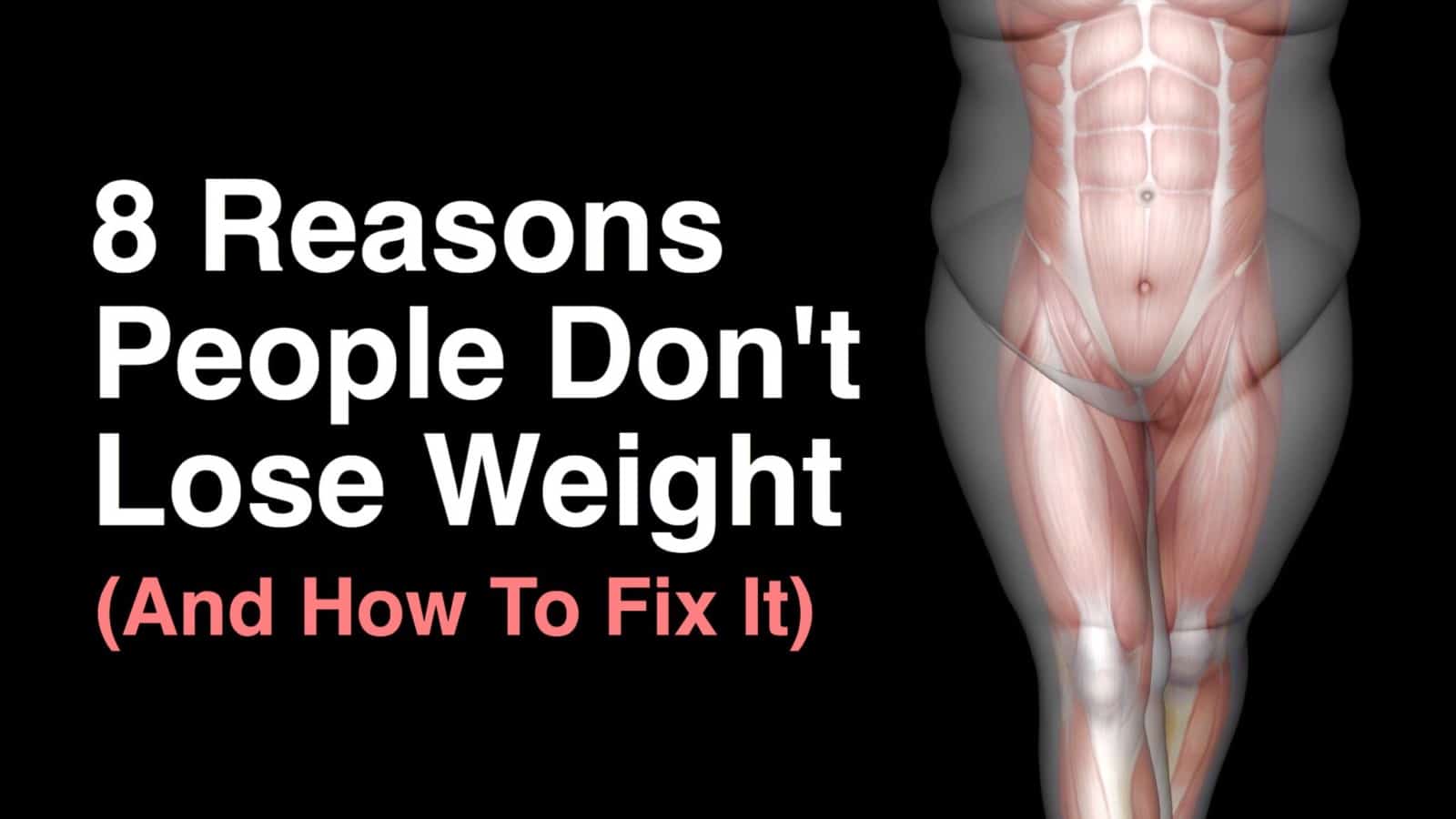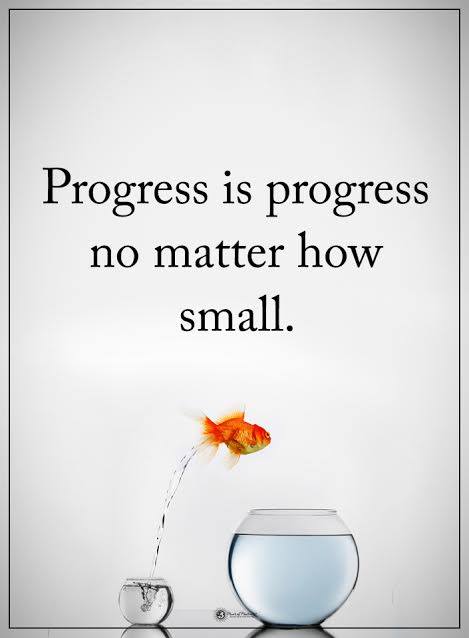Trying to lose weight can be tricky, especially when you’re older or have always carried some extra weight. Changing your diet to something healthier and exercising regularly might not show the results you’re looking for.
There can be a myriad of reasons why you’re unable to lose weight despite changing your eating habits and hitting the gym. Certain lifestyle habits or underlying factors can make putting on the weight easy. Still, shedding it can be more difficult.
8 Reasons People Don’t Lose Weight (And How to Fix It)
“When you lose weight, it doesn’t begin in the gym with a dumbbell; it starts in your head with a decision.” – Toni Sorenson
1. Poor sleeping patterns and habits
When you’re not getting enough sleep, your body isn’t going to be working the way it’s supposed to. Not to mention, when you’re hit with a bout of insomnia, you might be heading to the kitchen for a midnight snack, which can lead to putting back on the weight you’d been trying to work off during the daylight hours.
Lack of sleep can also lead to a lack of motivation, making hitting the gym harder. Fixing your sleep schedule will do wonders for your mind and body.
2. It’s too light at night
According to studies, when animals are exposed to light while their food intake and exercise levels remain constant, they can still gain weight. We live in a world now that’s constantly lit up – from city lights to television screens to our mobile phones. Electronic devices can mess up our sleep levels, and exposure to blue light makes it harder to fall asleep. While it may not make you gain weight directly, it’s harder to keep off weight when you’re not getting your best night’s sleep. Shutting off electronics before bedtime can help put your sleep patterns back on the right track.
3. You might not lose weight due to chronic stress
Stress is a well-known cause of weight gain. Not only can stress mess with your hormone levels, but it can also make emotional eaters out of all of us. Stress drives overeating, which can undo any progress you’ve made with diet and exercise. When stress starts to get high, focus on exercise and yoga to help calm you down. Or, if you know the best way to eat, keep healthy snacks in the house that will keep you on the right track with your eating.
4. You might now lose weight when taking medications
Many medications can cause your metabolism to screech to a halt. They can also cause cravings and an increase in appetite. For many medications, weight gain is a side effect, but one that can be avoided. Asking your doctor about different alternatives for your medication that don’t have a weight-gain side effect can help keep you both healthy and medicated and be good for your weight.
5. Negative self-talk
Nothing can make you lose the motivation to exercise and diet faster than not believing in yourself. When you slip up or when you skip a day at the gym, it can be easy to berate yourself and talk negatively about yourself in your head. This will make you lose the motivation to keep trying. The best thing to do is to change how you talk to yourself. Be kind to yourself and use statements in the third or second person: “You can do it,” or “It’s okay that you skipped today, you’ll try again tomorrow.” The psychological effects on your motivation will be absolutely stunning.
6. Chemicals and pollution
We’re surrounded by all kinds of chemicals every day. Indeed, we even experience a few we don’t even think about, in the air, our gardens, and our homes. These chemicals can often promote weight gain, especially if you’ve been exposed to them for long periods during your formative growing years.
The best way to cut these chemicals out of your life is to make sure you’re buying fresh foods and cutting down on how much plastic you have in your home. Filtering your water with carbon filters will also help you cut the harmful chemicals out of your life.
7. You might not lose weight due to medical conditions
Several medical conditions can have weight gain as a side effect – for example, thyroid conditions can make you gain weight without showing any other symptoms. If you find yourself gaining weight and unable to lose it no matter what you do, try talking with your doctor and getting checked out for any number of health conditions that can cause a drastic spike in weight.
Once you get it under control, you’ll find it easier to keep the weight off and stay healthy and active.
8. Chronic depression
Sometimes, people can have depression and not even know it, because they’re just used to living that way. Unfortunately, depression can also cause weight gain from inactivity and over-eating. Talk to your doctor about how you’re feeling, and they may be able to help you manage your depression so you can take control of your life and your body once more. Being free of a heavy cloud of depression will make exercising and managing your diet much more effortless.
A few changes in habits and lifestyle can make losing weight more possible. Even if you’re doing everything right when it comes to eating and exercise, there can still be some key factors that make keeping that extra weight off hard. The most important thing to know is never to give up; making mistakes is okay. Once you’ve figured out the habits that work for you, you’ll be amazed at how much easier it is to keep up with exercise and diet and keep your weight down.
Final Thoughts on the Factors That May Block You When You Want to Lose Weight
Trying to lose weight for optimal health is a commendable decision. But it’s essential to recognize that the path isn’t always straightforward. As highlighted in the article, there are numerous factors, both internal and external, that can hinder your progress. From disrupted sleep patterns to the silent effects of light pollution, from the mental battles of negative self-talk to the physical challenges posed by certain medications, each factor plays a significant role in determining the success of your weight loss efforts.
It’s crucial to remember that weight loss is not just about diet and exercise. It’s a holistic process encompassing mental, emotional, and environmental aspects. The journey is as much about understanding and managing these factors as it is about counting calories or steps.
Moreover, it’s essential to approach weight loss with patience and compassion. Negative self-talk, for instance, can be a significant roadblock. Instead of being hard on oneself, adopting a mindset of perseverance and self-love can make all the difference. Remember, setbacks are natural, and every individual’s journey is unique.
So, while the road to weight loss can be riddled with challenges, understanding these obstacles is the first step to overcoming them. With determination, awareness, and the proper support, anyone can navigate these challenges and achieve their weight loss goals. Remember, it’s not about perfection but progress. Stay informed, stay positive, and most importantly, believe in yourself.
















 Community
Community

